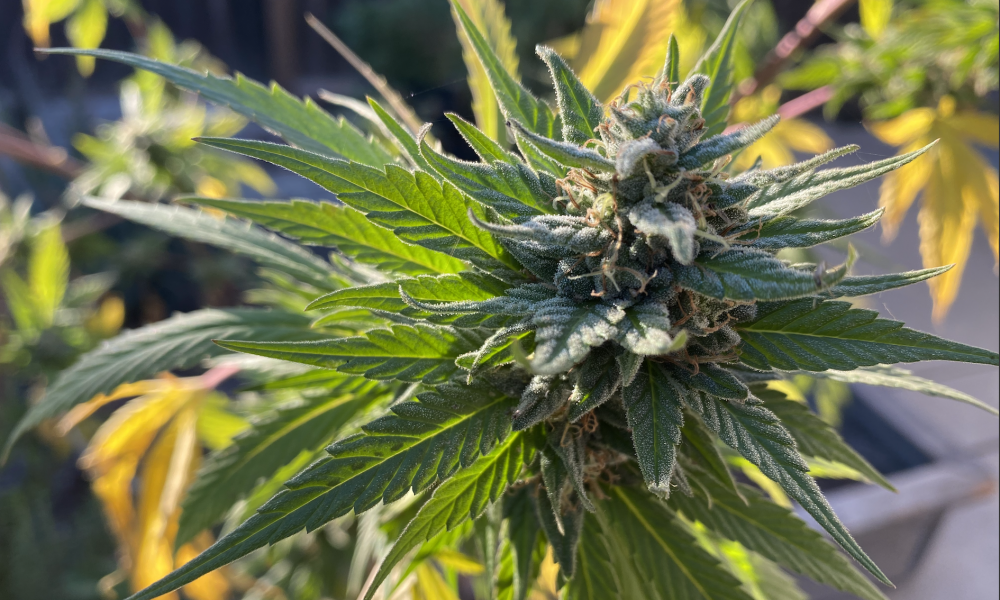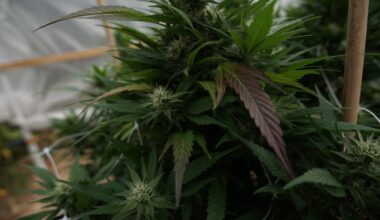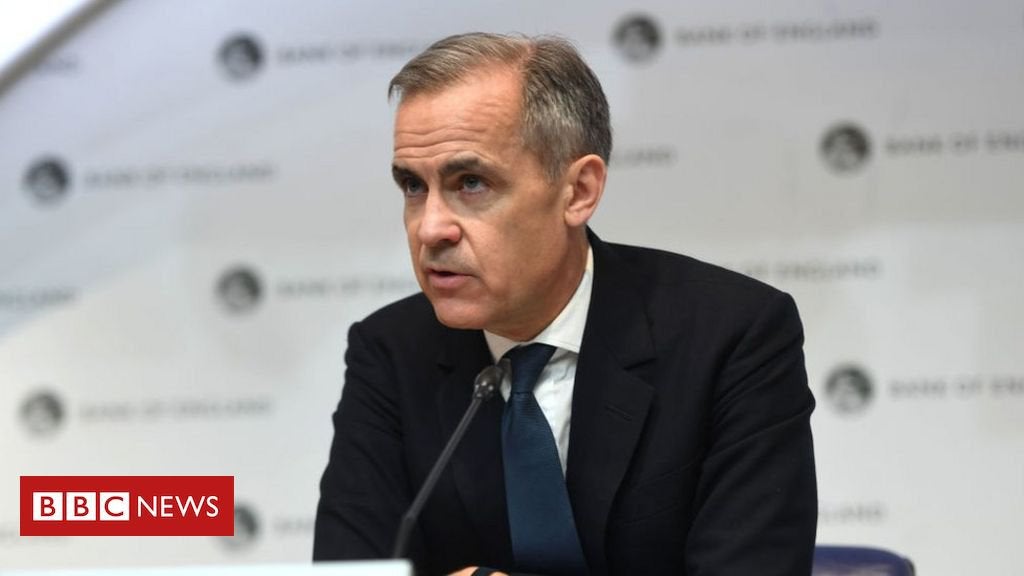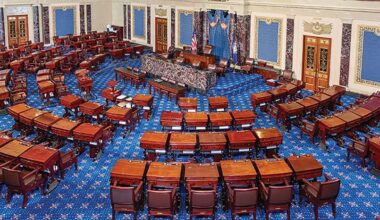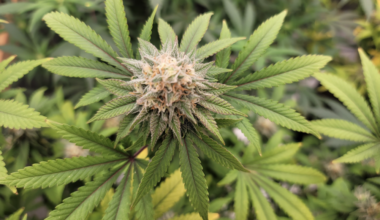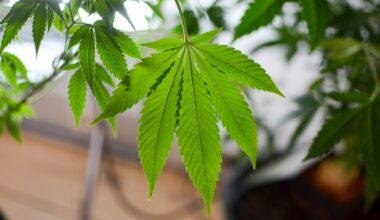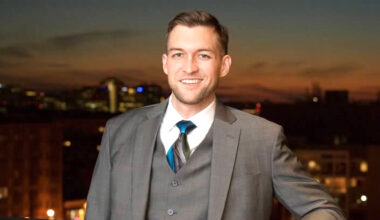Marijuana legalization might have broad support among Virginia voters—but the state’s 2021 elections are revealing significant partisan divides on the issue with candidates vying for public office.
Gov. Ralph Northam (D) signed an adult-use legalization bill into law last in April, and it took effect last week. Despite public support for the policy change, however, GOP gubernatorial candidate Glenn Youngkin and Republican attorney general contender Jason Miyares have been seriously critical of the reform. And their Democratic opponents are seizing on that stance.
Terry McAuliffe, the party’s nominee for governor after previously serving the state in that role from 2014-2018, said on Friday that the “vast majority of Virginians support legal cannabis, but extreme Republicans are determined to make it illegal again.”
The vast majority of Virginians support legal cannabis, but extreme Republicans are determined to make it illegal again.
Yet another example of how Glenn Youngkin and the GOP are out of touch with Virginia.
— Terry McAuliffe (@TerryMcAuliffe) July 1, 2021
State Attorney General Mark Herring similarly blasted his opponent, Del. Jason Miyares (R), for voting against legalization this session along with the vast majority of other Republican members of the state legislature. The AG, who pushed for ending cannabis prohibition ahead of Northam and many other officials in the state, described the policy as “the simplest, most common-sense criminal justice reform.”
My Republican opponent voted against marijuana legalization, even the simplest, most common-sense criminal justice reform.
Not only do I support marijuana legalization, but I support expanding opportunities for record expungement.
— Mark Herring (@MarkHerringVA) July 1, 2021
“Not only do I support marijuana legalization, but I support expanding opportunities for record expungement,” Herring said.
More than two-thirds of adults in the Commonwealth (68 percent) favor adult-use legalization, including a slim majority (51 percent) of Republican voters, according to a poll released in February.
“Glenn Youngkin and Jason Miyares are running on a hardline Republican agenda—and their allies in Richmond are committed to rolling back the progress Virginia has made in the last 8 years,” Democratic Party of Virginia Spokesman Manuel Bonder told Marijuana Moment. “Youngkin and Miyares’ opposition to marijuana legalization is further proof that they are wrong for Virginia.”
In response to criticism and accusations that Youngkin would seek to repeal legalization if elected, his campaign responded on Twitter on Friday that the claims were false.
False.
Glenn Youngkin will not seek to repeal it; his focus will be on building a rip-roaring economy with more jobs and better wages, restoring excellence in education, and reestablishing Virginia’s commitment to public safety.
— Team Youngkin (@TeamYoungkin) July 2, 2021
“Glenn Youngkin will not seek to repeal it; his focus will be on building a rip-roaring economy with more jobs and better wages, restoring excellence in education, and reestablishing Virginia’s commitment to public safety,” the account’s post states.
Marijuana Moment reached out to the Republican Party of Virginia for further comment but a representative simply replied with a link to the Youngkin tweet.
A spokesperson for the GOP gubernatorial nominee told Virginia Mercury that he questions whether revenue projections on legal cannabis sales are realistic and, if elected, would focus on preventing youth access.
“If there was a group of children that were sitting here and I was talking to them about marijuana I would tell them don’t use it,” Youngkin said at a campaign event in April. “I’ve never met anybody who habitually used marijuana and was successful and I would tell all them the same thing.”
In a May appearance on CNBC, Youngkin described legalization as “another problem that’s going to be dumped at my feet” if he’s elected.
McAuliffe, for his part, coauthored a Washington Post op-ed last November that urged the state to legalize marijuana with a focus on social equity.
“We know this industry is going to generate hundreds of millions of dollars, and it would be easy to pump all of this money back into the general fund,” he wrote. “However, the revenue must be invested back into communities that have been affected the most to tackle the inequities they’ve faced, whether in criminal justice or education.”
Democrats are cautioning that electing Republican candidates would jeopardize the reform, empowering Republican lawmakers to undermine the law when major portions of it go back before the legislature for reenactment in the coming session.
Last month, Sen. Siobhan Dunnavant (R) reportedly said at a campaign event that she thought her party might be able to flip control of the state House of Delegates by running on a pledge to overturn legalization.
In a plea to flip the House, Dunnavant says they could kill the work that the democrats have done the last two years, naming marijuana legalization specifically
— Brandon Jarvis (@Jaaavis) June 28, 2021
Democratic lieutenant governor nominee Hala Ayala tweeted on Tuesday that marijuana legalization was one of the state’s major accomplishments since the party took over a majority of the legislature.
“We must protect our majority if we want to keep going,” she said.
Since Democrats gained control of the Majority, we’ve expanded Medicaid to over 500,000 Virginians, raised teacher pay, abolished the death penalty and legalized marijuana. This is the floor, not the ceiling. We must protect our majority if we want to keep going!
— Hala Ayala (@HalaAyala) July 6, 2021
Over the last session, Northam, the current governor, strongly advocated for cannabis reform, and lawmakers sent bills to enact legalization to his desk in February. In March, the governor formally submitted substitute language to the bills—including speeding up the timetable for legalizing possession and home cultivation—and in April both chambers approved the proposed changes as suggested. That meant no further action was needed from Northam to enact them into law.
Effectively July 1, public possession of up to one ounce of cannabis by adults over 21 was made legal, and personal cultivation of up to four plants at home is also now allowed. Private sharing of up to an ounce of marijuana between adults is also legal, as long as no remuneration is involved.
According to a website launched by Virginia regulators last month, “all records of misdemeanor possession with intent to distribute marijuana arrests, charges, and convictions will be automatically sealed from public view in the Virginia State Police’s systems” starting on Thursday as well.
Regulators can start developing rules for adult-use retail establishments starting on July 1, shops cannot open until January 1, 2024 and it will “take time for the authority to hire staff, write regulations, and implement equity and safety initiatives.”
Most of the legal cannabis sales provisions of the law are subject to reenactment by the legislature under the final deal agreed to by lawmakers earlier this year, meaning that the timeline could end up shifting after the next legislative session.
Medical Disclaimer:
The information provided in these blog posts is intended for general informational and educational purposes only. It is not a substitute for professional medical advice, diagnosis, or treatment. Always seek the advice of your physician or other qualified healthcare provider with any questions you may have regarding a medical condition. The use of any information provided in these blog posts is solely at your own risk. The authors and the website do not recommend or endorse any specific products, treatments, or procedures mentioned. Reliance on any information in these blog posts is solely at your own discretion.
